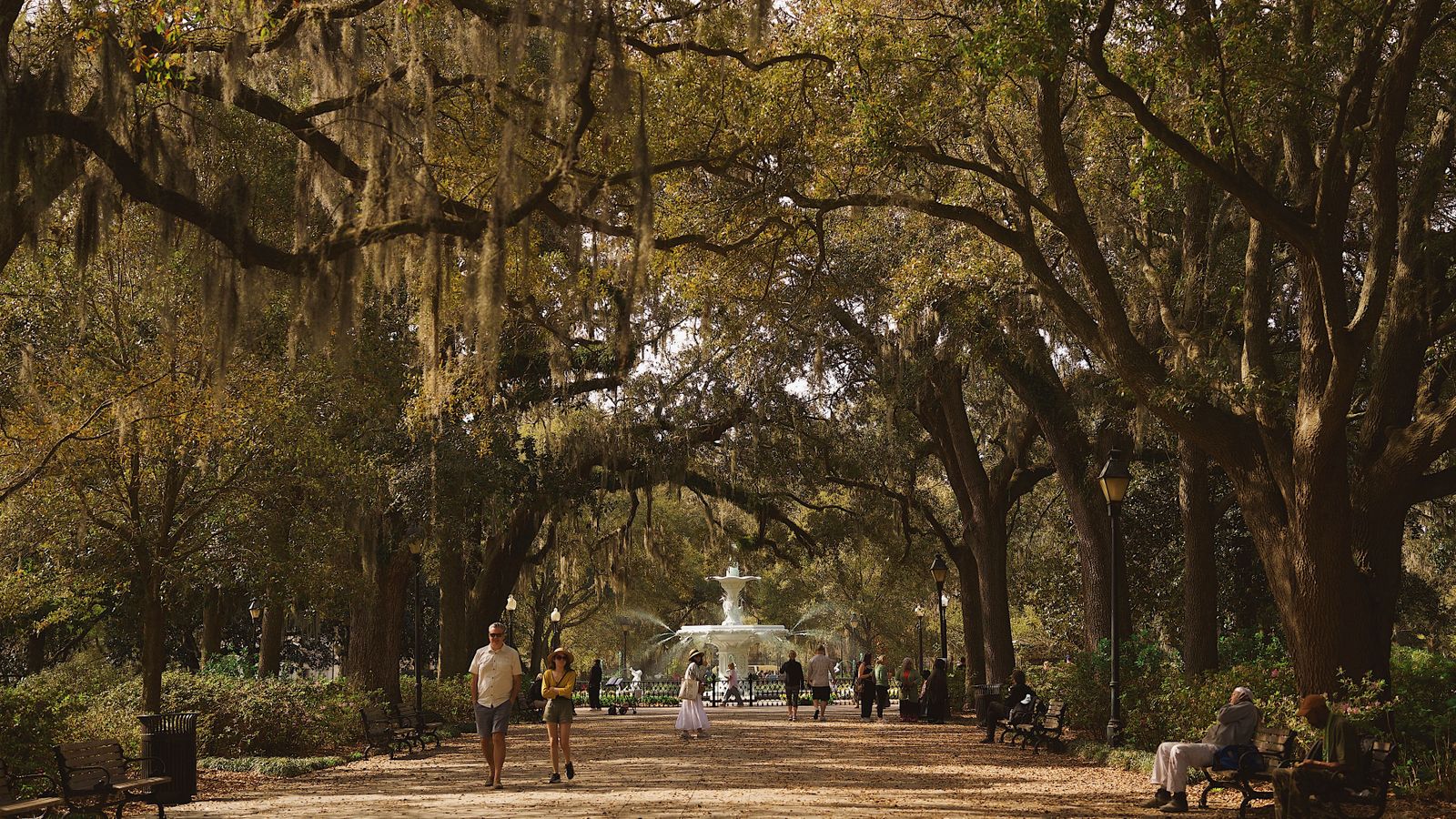Porticos, parapets, Grecian columns, marble balusters, sculptural ironwork, palladian windows–every visitor to Savannah will soon familiarize themselves with these words.
Savannah is a walking city as John Berendt, the author of Midnight in the Garden of Good and Evil, wrote, “During my walks, I would always pass a fair sampling of Savannah’s main attraction: its architectural gems. The sheer number of distinguished buildings is astonishing for a city of its size.”
Much can be learned about Savannah as one walks through the city, reading the historical markers and noting the flowers in bloom. Walking is the best way to experience both the architectural and cultural history. Neoclassical and Federal style homes line the lush quilt of squares that have been the framework of the city since its initial 18th-century design. Buildings, you may also hear, were not to be taller than the church steeples. And, if you are so inclined, you will soon familiarize yourself with these words that describe the architecture: porticos, parapets, Grecian columns, marble balusters, sculptural ironwork, palladian windows. Many of these homes are museums, as well. Which allows visitors to step back in time, hearing the layers of stories of Savannah’s past.
Growing up in Georgia, I knew the lore of the cities that General Sherman, the Union general in the Civil War, did not burn. Savannah, famously, is one of these cities. In fact, Sherman even presented the city as a “Christmas gift” to President Lincoln on December 22, 1864 (a few months after Atlanta was burned). Other lore includes the song, “Moon River,” which was written about Johnny Mercer’s childhood growing up in Savannah. You can walk along the actual Moon River just outside of downtown.
Savannah will stick with you. The way the late Summer light finds its way into the crevices of the centuries-old woodwork on the facades of buildings, the way the magnolias bloom in late Spring, spreading out in Forsyth Park for a lazy afternoon, and all of the many, many walks one can take. Even if your visit is brief, it will be hard to forget.
Words by Monica Nelson
